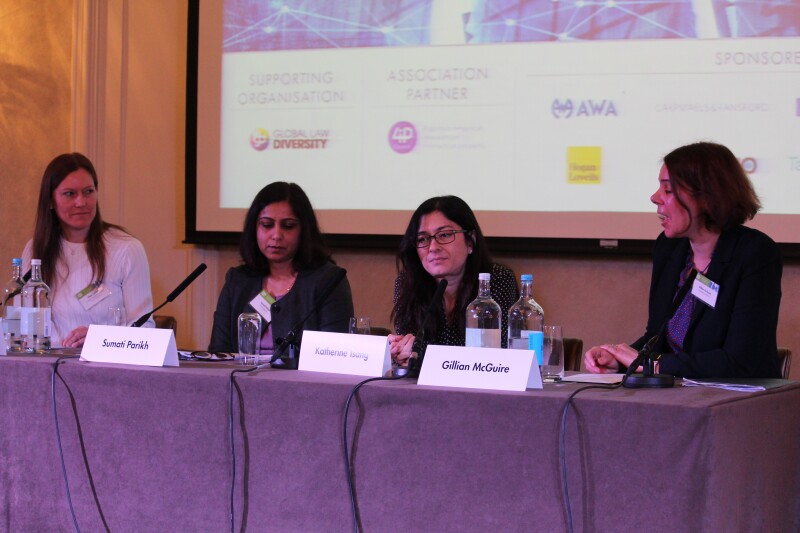The Forum took place on January 30 2019 at the Waldorf Hilton Hotel in London, and featured a range of speakers who offered useful insights into how to safeguard IP rights through the application of a nimble strategy.
Gillian McGuire, partner at Carpmaels & Ransford, referenced three different strategies that companies use to protect their IP:
A targeted approach – this involves deciding what product to protect and then drafting claims narrowly with the aim of keeping people from infringing on those claims. Such companies also file narrowly - only in jurisdictions where their competitors operate.
The second category of companies are those that “want to define their own technical space. They don’t necessarily have their own specific product yet, but they know where they want to operate.” McGuire added: “Here you see a far broader filing strategy – much wider claims in terms of patents and geographical coverage.” She noted that this approach, however, can create issues around plausibility during patent prosecution.
The third group of companies simply want to monetise their IP via licensing. McGuire observed: “In the life sciences and pharma sector, it is not unusual for companies to set up asset-centric special purpose vehicles.”
Reviewing and updating your strategy

The first panellist Katherine Tsang, assistant general counsel at Diageo, summarised the company's approach to a review of its filing protocol. The review was done in the following stages:
The company prioritised its 200 brands, separating them into tier one and tier two.
Tier one included higher priority brands, while tier two consisted of those less well known.
The brand name and core logo were always registered in every relevant country.
For get-up, for tier one brands, the company identified the highest value markets which together made up 70% of the brand’s sale volumes. For tier two brands, the company used a 50% threshold. This was the starting point, and protection would then be expanded to further countries for strategic and enforcement purposes.
Tsang observed that the company drove the biggest cost-saving in the arena of variants. She said: “We’ve adjusted our mindset. We used to think, you must have a highly distinctive, protectable variant brand name, but actually when you’re combining it with names like Guinness or Baileys perhaps you can afford to have a descriptive name.”
Formulating an IP strategy
Sumati Parikh, global head of intellectual property at Smith Detection, identified the key factors to consider when formulating an IP strategy.
Align your IP strategy with your commercial strategy. Think about where the business wants to be in the short term, five years and 10 years.
Does the company need to buy or license technology from others for its products? Parikh noted that “If you are planning to launch a product in five years, you can probably develop the technology on your own.”
Review your IP portfolio regularly. If you have IP which is no longer relevant, let that IP lapse or expire. Alternatively, although that IP may not be important to you, it could be of use to someone else; another business might buy it or take a licence for it.
Before taking the decision to enforce a patent, think about the human resources and financial commitment that will be needed.
Is losing a case more detrimental to the company than allowing small infringements?
IP management has a role to play throughout the lifecycle of a product.
Parikh said also that the “Asia-pacific market is becoming increasingly important and many companies are filing more and more in India and China, because those are the markets for future growth.”
Generating revenue from IP assets
Clare Cornell, partner at Finnegan, Henderson, Farabow, Garrett & Dunner discussed the generation of income from IP assets. She noted that “Licensing-out IP can facilitate faster entry into new markets, particularly if you are a company that is well established in one jurisdiction and you want to enter another market.”
She stressed the importance of ensuring that licence agreements extend beyond the term of the licence so that confidential information is still protected even after the licence’s expiry. She also emphasised that a licence could restrict a company’s ability to exploit its technology and sell its products, either because an exclusive licence exists, or because the market is already saturated with the licensee’s products.
Cornell discussed the licensing-in of technology. The need to license-in technology can arise when a company does not have all the research facilities and resources required for a particular product. She mentioned the value of branding: “Companies can obtain access to branding and goodwill in order to supplement their product lines and bring interest into a particular retail area. They can take a licence from a market leader and draw people to their business.”
Cornell noted also that a licence can be used to avoid an infringement action when companies do not have the appetite for litigation. She also highlighted the importance of licensees being able to amend any unfavourable terms incorporated into a licence agreement.











